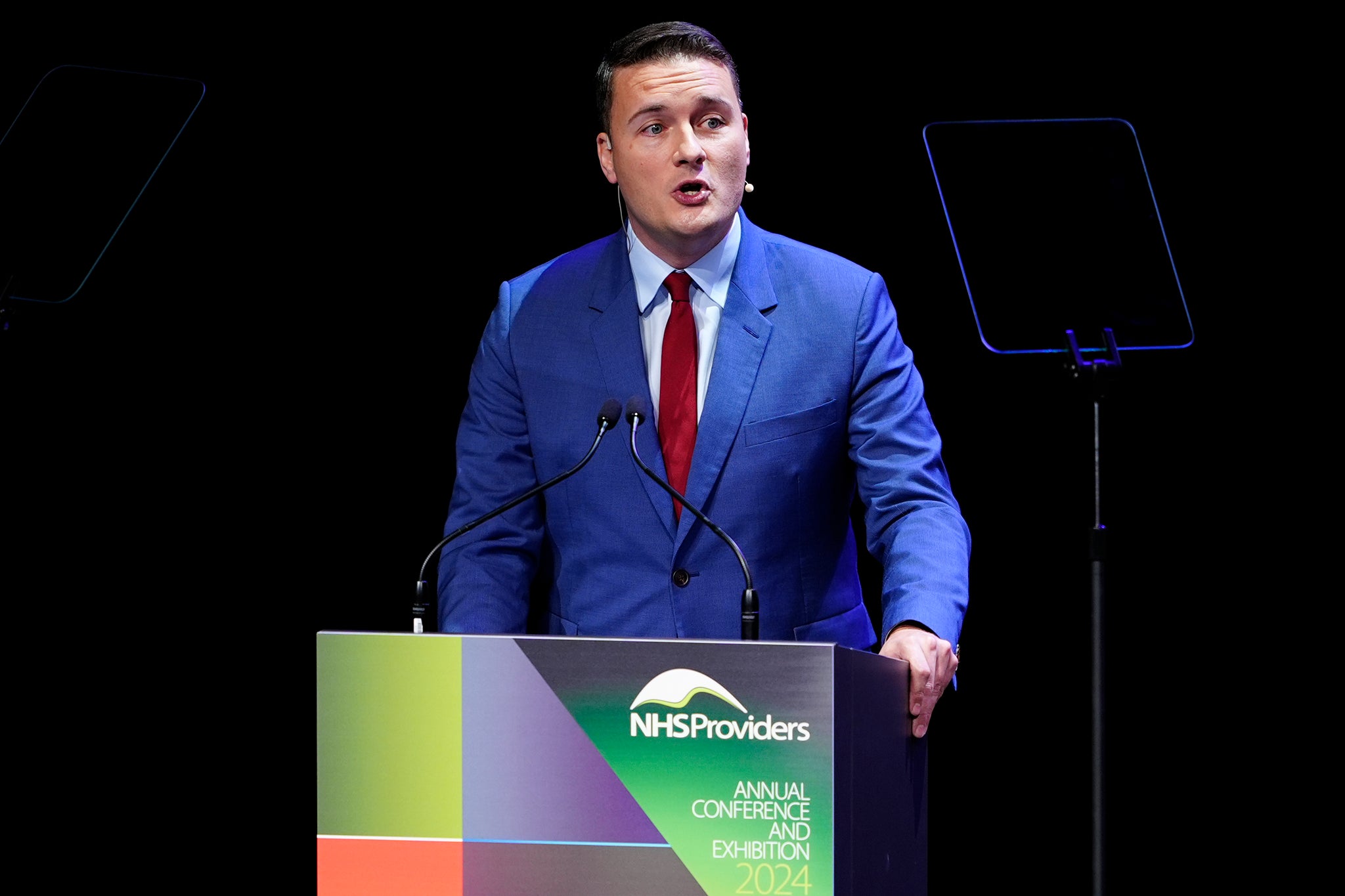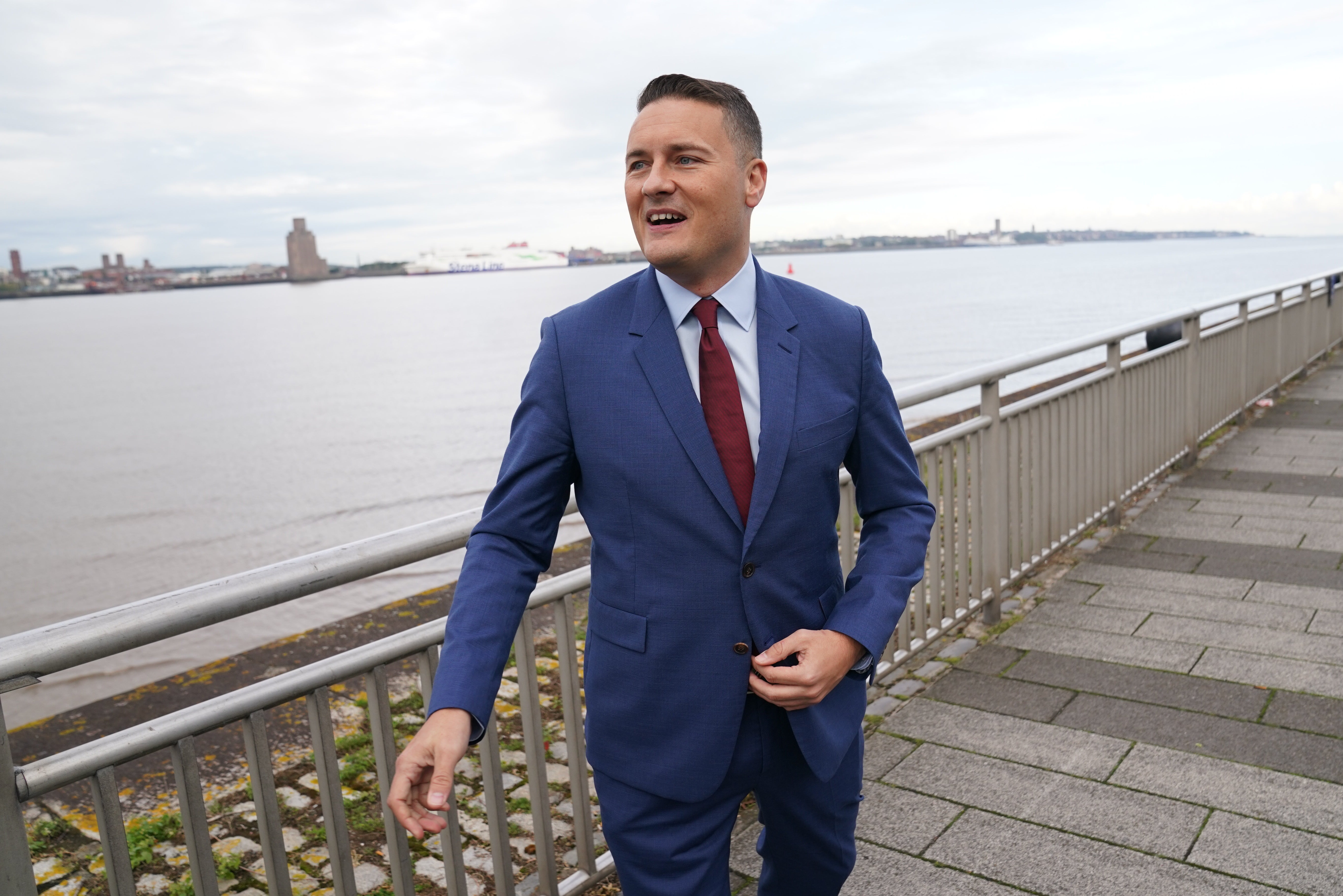Wes Streeting to look into NHS physician associates amid concerns over role
PAs are graduates who have undertaken two years of postgraduate training

Your support helps us to tell the story
From reproductive rights to climate change to Big Tech, The Independent is on the ground when the story is developing. Whether it's investigating the financials of Elon Musk's pro-Trump PAC or producing our latest documentary, 'The A Word', which shines a light on the American women fighting for reproductive rights, we know how important it is to parse out the facts from the messaging.
At such a critical moment in US history, we need reporters on the ground. Your donation allows us to keep sending journalists to speak to both sides of the story.
The Independent is trusted by Americans across the entire political spectrum. And unlike many other quality news outlets, we choose not to lock Americans out of our reporting and analysis with paywalls. We believe quality journalism should be available to everyone, paid for by those who can afford it.
Your support makes all the difference.Wes Streeting said there are “legitimate concerns” over the role of physician associates (PAs) amid worries they are being used to replace fully qualified doctors.
The Health Secretary said he wanted to look into the issues around the roles before a planned expansion in the number of medical associates.
Mr Streeting acknowledged there were concerns around the tasks PAs were doing and transparency, with patients not necessarily realising they were not being treated by a doctor.
PAs are graduates – usually with a health or life sciences degree – who have undertaken two years of postgraduate training.
Their role is to support doctors in the diagnosis and management of patients, and they can deployed across GP surgeries and hospitals.
There has been an ongoing debate within the NHS about the use of such roles, with the Academy of Medical Royal Colleges calling for a review into PAs and anaesthesia associates (AAs) to “clarify claims around their safety and usefulness in patient-facing roles”.
Mr Streeting told BBC Breakfast: “I am taking these concerns seriously and I’ve spent a lot of time listening to clinicians, listening to physician associates as well, by the way.
“I think they do have a role to play and can add value, not least in freeing up doctors’ time to do the things that only doctors can do.
“But I think there are legitimate concerns about the extent of doctor substitution and replacing doctors with PAs, there are issues around transparency.
“As patients, we should know who we’re seeing, who’s in front of us and why, and we’ve got to take those issues seriously.”

Mr Streeting said he would be saying more about the associate roles “in the coming weeks”, hinting an expansion in the number of the roles could be paused while work is carried out to address concerns.
Under the NHS long-term workforce plan the number of associates will expand from around 3,500 at present to 10,000 physician associates and 2,000 anaesthesia associates by 2036/37.
Mr Streeting said: “Before we put the foot down on the accelerator to expand the number of roles, I think we also firstly need to take stock on where we are, dive deeply into some of the challenges that are being put to us by the medical profession about the deployment of these roles, because I need to assure myself, in order to assure the country, that we’ve got the right people in the right place doing the right thing.”